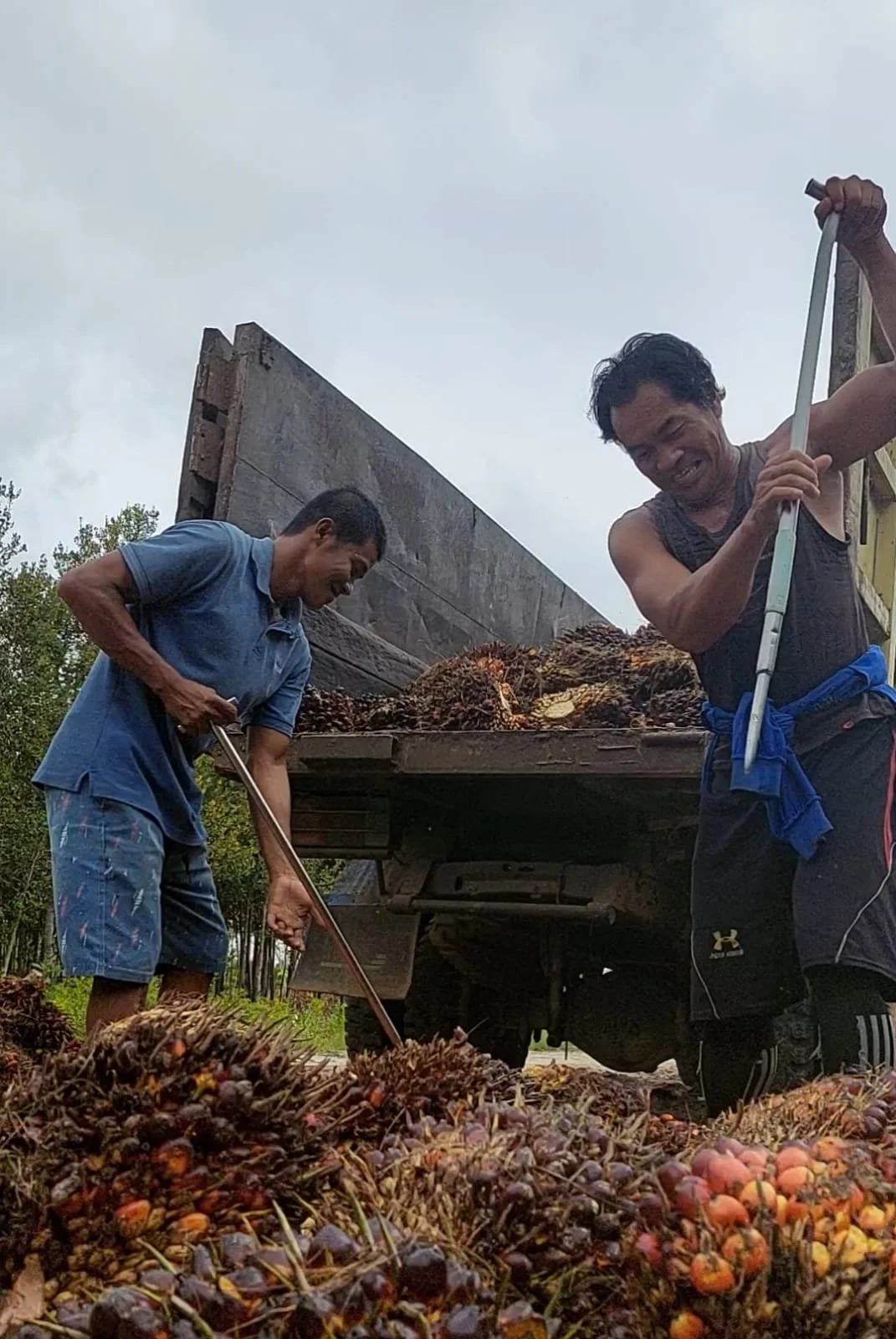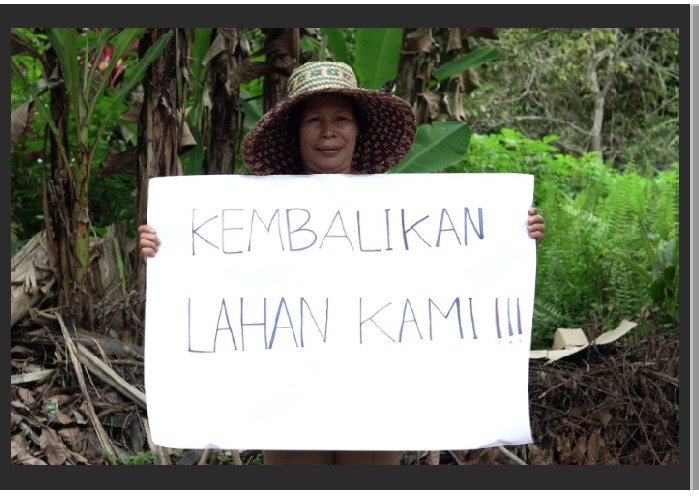Since 2006, Indonesia has been ranked as the world's biggest palm oil producer and exporter. Driven by high global demand and Indonesia's supportive policies, palm oil plantations have been expanding rapidly in the past decades, with the majority located in Sumatra and Kalimantan Island. Palm oil plantations and processing industries are important key industries for Indonesia's economy and contribute between 1.5 and 2.5 percent of the nation's gross domestic product (GDP). According to a report by the Indonesian Ministry of Agriculture, in 2016, the industry exported 27 million tons of CPO and gained 18.6 billion dollars. However, today, the people of Indonesia have to compete to get palm oil, which is becoming increasingly rare and expensive. And despite generating a huge amount of foreign exchange, not everyone enjoys the economic prosperity of the commodity, especially the blue-collar workers and local communities around palm plantations. Here are the unheard stories of their struggles:
Palm oil worker: low salary and limited labor right
Kariano (46 years old) picked up and put the palm berries into the truck
Kariano is a palm berry bearer who has been working for almost four years for a big palm plantation company in East Barito Regency, Central Kalimantan. He is responsible for putting one by one of the palm bunches from the plantations into trucks. Together with his co-workers, they can carry two tons of palm berries. For a middle-aged man, this job feels very difficult and tiring.
"Can you imagine picking up and then throwing thousands of palm bunches, each weighing between 15 and 60 kg? It is really hard work, ", expressed Kariano with a shirt full of sweat after he did his job. "However, I only get paid around Rp. 1,500,000 to Rp. 3,500,000 depending on how many palm berries are harvested. And as a non-contract worker, I do not get any insurance from the company. For example, if I get hurt during work, I should pay all my hospital bills by myself. I also do not enjoy all the special rights of contract workers, such as bonuses and job security. Many of my friends who have been working here for almost a decade have also not been appointed as permanent employees."
The issue of palm oil labor rights has been loudly echoing for a long time. The blue-collar palm oil workers are very vulnerable to slavery. Many of them do not have certainty of employment status, and they also receive minimal wages even though they work very hard and without safety and health protection. Yet, until today, challenges remain.
Land dispute with local communities and Deforestation
Markus and Rustiana are two Indigenous people from Janah Jari village in East Barito, Central Kalimantan, who have tasted the chill of the prison bar due to a land dispute with a palm oil company in their village. With glassy eyes that showed sorrow and fear, Rustiana called the dreadful event when the police arrested them.
Rustiana demanded to return their family lands
"I was working on my rubber plantation when suddenly many police officers came. They said I stole the company's rubber sap. Then, they took us to a police station, and after a few months, we had our first court hearing. The judge gave us a prison sentence. I was very afraid. On the first day in prison, I could only cry thinking about my only daughter, who still needs a lot of money for her education. Who will support her if I am in prison? Fortunately, my relative can bail me out. I only stayed in prison for a day. To this day, I am still frightened. "
For decades, Markus and Rustiana fought with the palm company over hundreds of hectares of their family's land. They have even asked for help from the South Barito Regional People's Representative Council for mediation. But until now, there has been no any certainty about the status of their land, which was claimed unilaterally by the company.
Not only were there land disputes, but the presence of the palm company around their village also divided the community and damaged the harmony between villagers and families.
"Before the company came to our village, we lived in peace and harmony. Now, the community has been divided into two, and our unity has been shattered. For economic reasons, many villagers sell their lands and work with the company. But, some villagers still protect their land because they have seen the ecological damage caused by deforestation for palm plantations, "said Markus.
Cutting and clearing forests for palm oil plantations has significantly changed the lives of the many local and indigenous communities around the plantation. As forest-dependent people, they heavily rely on the forest to source food, medicine, and clean water. However, as they lost much of the forest, they were forced to adapt to the new reality. Some of those who do not have any more land, become very poor and get marginalized.
Palm oil mapping according to the size of plantations.
"Even though we could not buy any good car or build a beautiful house, we were very prosperous before the palm company started work on our land. But now, many do not know how to get food on the table for their family," expressed Markus.
This is another side of the coin of the palm oil plantation and industry in Kalimantan. It is time for the government and other stakeholders to make a breakthrough move to protect the rights of palm oil laborers who give uncountable contributions to the development of this number one commodity in Indonesia. It is extremely necessary to settle numerous unfinished land disputes between indigenous peoples and palm oil companies.
Written by: Sumarni Laman



